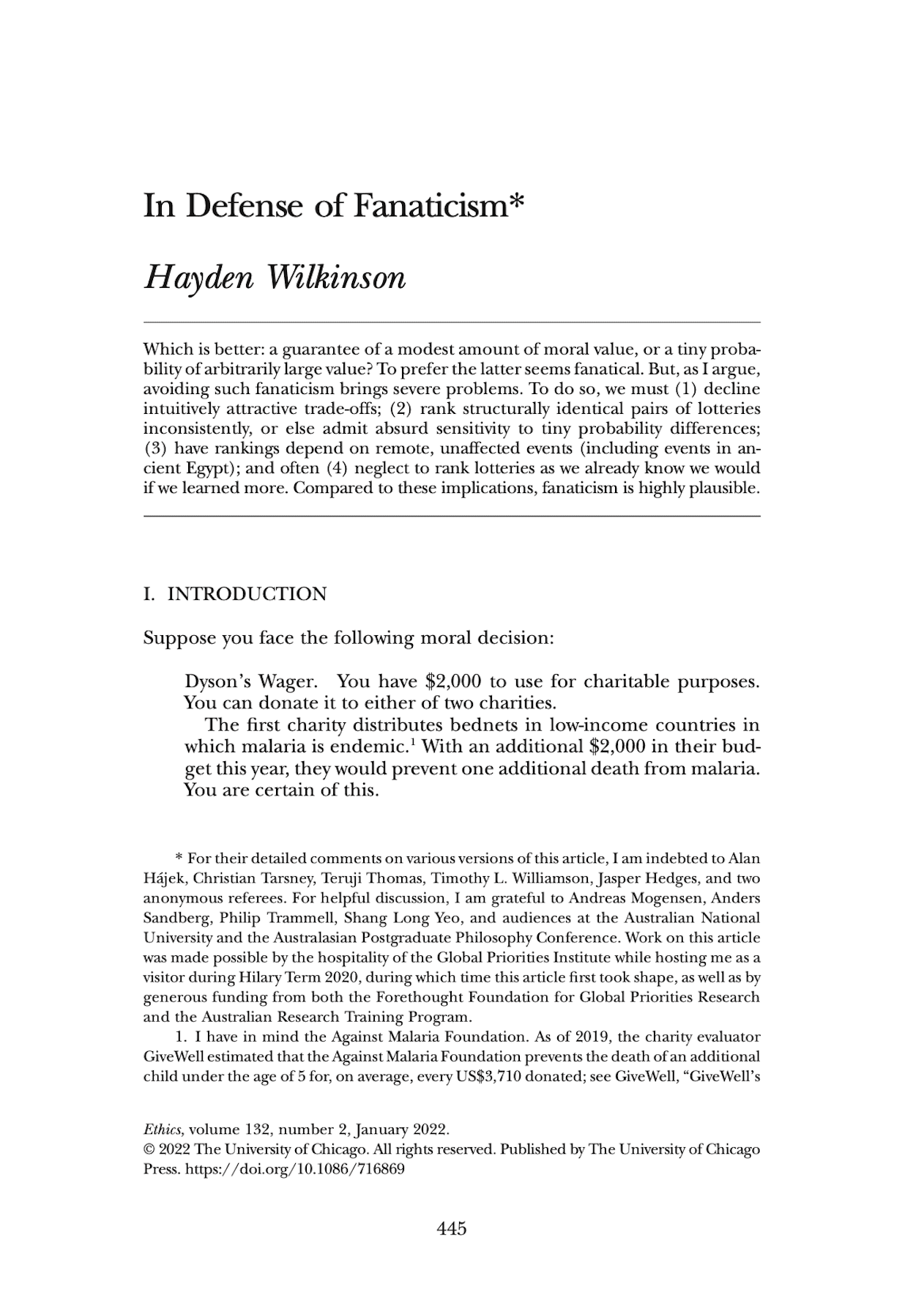In defence of fanaticism
Hayden Wilkinson (Australian National University)
GPI Working Paper No. 4-2020, published in Ethics
Which is better: a guarantee of a modest amount of moral value, or a tiny probability of arbitrarily large value? To prefer the latter seems fanatical. But, as I argue, avoiding such fanaticism brings severe problems. To do so, we must (1) decline intuitively attractive trade-offs; (2) rank structurally identical pairs of lotteries inconsistently, or else admit absurd sensitivity to tiny probability differences;(3) have rankings depend on remote, unaffected events (including events in ancient Egypt); and often (4) neglect to rank lotteries as we already know we would if we learned more. Compared to these implications, fanaticism is highly plausible
Other working papers
The end of economic growth? Unintended consequences of a declining population – Charles I. Jones (Stanford University)
In many models, economic growth is driven by people discovering new ideas. These models typically assume either a constant or growing population. However, in high income countries today, fertility is already below its replacement rate: women are having fewer than two children on average. It is a distinct possibility — highlighted in the recent book, Empty Planet — that global population will decline rather than stabilize in the long run. …
AI takeover and human disempowerment – Adam Bales (Global Priorities Institute, University of Oxford)
Some take seriously the possibility of AI takeover, where AI systems seize power in a way that leads to human disempowerment. Assessing the likelihood of takeover requires answering empirical questions about the future of AI technologies and the context in which AI will operate. In many cases, philosophers are poorly placed to answer these questions. However, some prior questions are more amenable to philosophical techniques. What does it mean to speak of AI empowerment and human disempowerment? …
Quadratic Funding with Incomplete Information – Luis M. V. Freitas (Global Priorities Institute, University of Oxford) and Wilfredo L. Maldonado (University of Sao Paulo)
Quadratic funding is a public good provision mechanism that satisfies desirable theoretical properties, such as efficiency under complete information, and has been gaining popularity in practical applications. We evaluate this mechanism in a setting of incomplete information regarding individual preferences, and show that this result only holds under knife-edge conditions. We also estimate the inefficiency of the mechanism in a variety of settings and show, in particular, that inefficiency increases…

